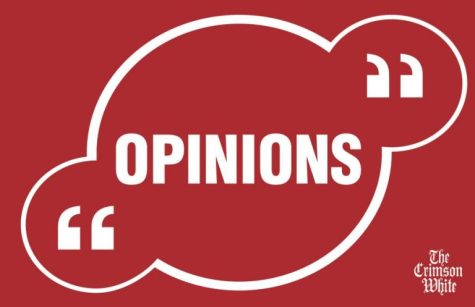There is no such thing as unbiased writing
November 6, 2019
As a news media major and a hopeful future journalist, I like to think of myself as an objective bystander. In reporting for the news, we are told to be impersonal and detached. You report the facts, you tell the story and you do not place yourself within it or offer commentary on it. However, even with all of these precautions, all of these measures taken to give the audience the most unbiased story possible, it is clear from the moment you read a headline just how a publication or individual feels about a particular subject. This happens because no matter how we try to fix it, humans are unpreventably human.
Personal bias seeps into everything we do and say. For example, Avengers star Jeremy Renner was recently accused by his ex-wife of threatening to kill both her and himself during the time of their marriage when he was abusing cocaine. Renner refuted these claims and said his ex was a sex-crazed lunatic who shared explicit photos of Renner and the family nanny just to cause discomfort and because she is “obsessed with the sex lives of those around her.” Now on this very same story with the very same details, Fox News, on their features and faces page, uses the headline “Renner Slams Sex Obsessed Ex.” The Daily Mail website, a British news outlet that is known to be fairly liberal, entitled their article, “Jeremy Renner’s Ex-Wife Sonni Says Daughter Not Safe in House.” These stories hold the same facts, but the reader goes into them with very different notions of Renner’s ex-wife.
I am not passing judgement on who is right or wrong here, simply making the observation that even in cut and dry news articles there is a way to show bias. It becomes incredibly difficult for us to form our thoughts and trust the news if everything is slanted in one way or another. The responsibility is on us, the readers, to decide what we believe is right and true. A good way to balance out the bias is to be an informed reader. That means reading multiple articles on the same subject, fact checking, doing research and weighing all of the information to make a knowledgeable, intelligent decision on what you believe to be true.
We all know the headline skimmers of the world who saw a singular link on a family member’s Facebook wall saying that Obama worked with Al-Qaeda or some other sensationalist drabble. Of course, they take that headline to be true with no further research. If they had even opened the article and read it for one second, they could have easily seen it is poorly written and full of logical holes. We live in a wonderful time, a time where anyone can share their thoughts with the world. With the influx of material, our personal responsibility to fight through the bias also grows.










